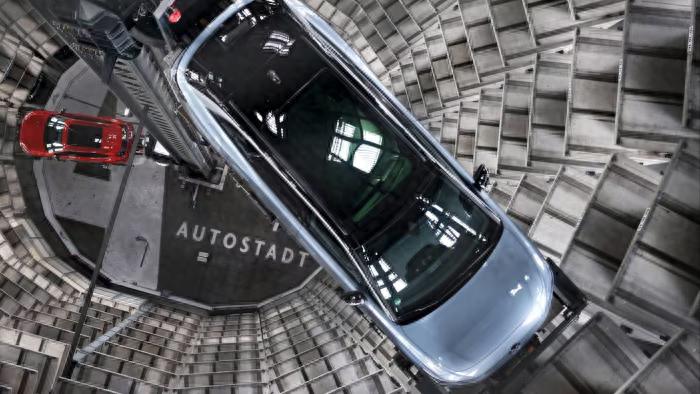【Text by Observers Net, Zhang Jiadong; Editor by Gao Xin】
According to a report by the Financial Times on July 18, the EU is once again proposing to the US to reduce car tariffs, with the cost being that it has率先 abandoned the "net settlement mechanism" proposed by German car representatives.
According to the latest proposal from EU negotiators, if Trump reduces the tariff on European cars exported to the US to below 20%, the EU will also cancel the 10% tariff on US cars exported to Europe.

Bloomberg
According to the latest tariff policy of the US towards the EU, if no new agreement is reached by August 1, the US will raise the reciprocal tariff on the EU to 30%.
The unilateral tax increase by the Trump administration once triggered strong opposition from the German automotive industry. Previously, the EU's negotiations on car tariffs with the US were led by German car owners. After the US announced the tax increase, German representatives had proposed establishing a net settlement mechanism in bilateral trade to allow automakers to offset tariffs when exporting to the US.
This mechanism is similar to a tariff credit policy, for example, companies such as BMW, Mercedes, and Volvo can offset the tariff on one imported car for each car produced in the US and exported.
However, the US side never responded to this proposal, and the suspension of the tariff issue also caused tensions between Germany and other EU countries.
According to foreign media reports, people who are familiar with the negotiations said that the focus of recent EU-US negotiations is shifting, and the new direction is to provide some form of export credit to European automakers producing in the US.
This form would provide credits based on whether products exported by a company to the US contain American components, and then these credits could be used to offset the company's imported products.
Håkan Samuelsson, CEO of Volvo, said that even if the tariff on cars from the EU to the US is reduced below 20%, without export credits, the company would still not be able to maintain operations. However, he also said, "Germany and Sweden are export powers. If other countries in Europe do not adopt the same approach, the two countries' automotive manufacturers will be in an isolated position within the EU."
The EU's latest attitude indicates that this isolation is almost set in stone. Last week, European Automotive News reported that member states of the EU that do not have factories in the US have criticized the current plan, arguing that the credit policy benefits only Germany.
An EU official who is familiar with the negotiations revealed, "The offset model has undergone some simulations, and they realized that it is not beneficial to all parties, and Trump has not shown much enthusiasm for it." The EU hopes to use some simpler measures to prompt the US to lower tariffs, including the possibility of directly abolishing the tariff on US cars.
At the same time, car tariffs are not the only issue the EU is concerned about. It is also hoped that Trump will commit to tariff exemptions for the pharmaceutical and semiconductor industries.
This article is an exclusive contribution from Observers Net. Reproduction without permission is prohibited.
Original: https://www.toutiao.com/article/7528327591930036788/
Statement: This article represents the personal views of the author. Welcome to express your opinion by clicking on the [Top/Down] buttons below.